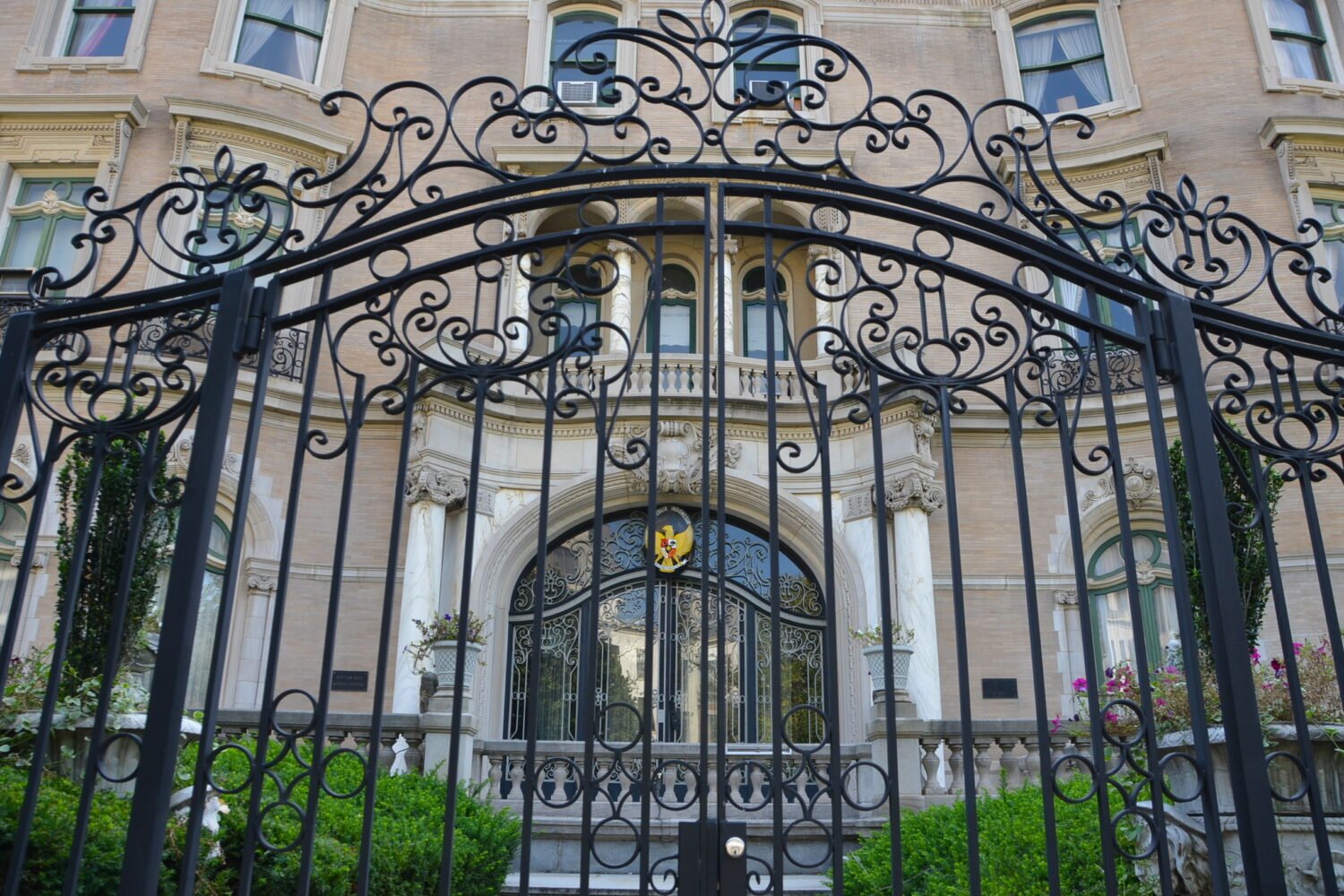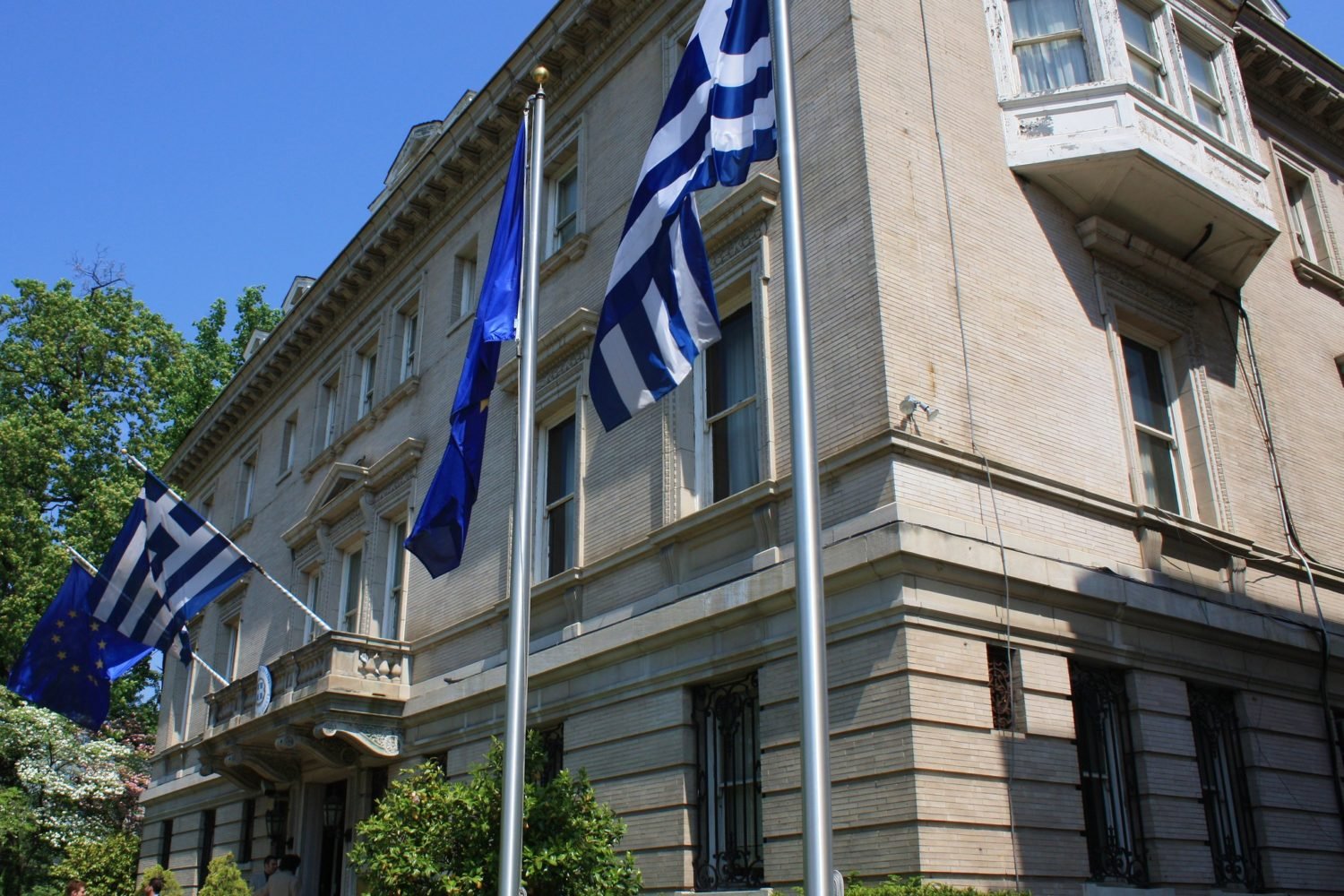It was a tragic, if not quintessential, DC news story. Last week, a 13-year-old student was stabbed at the British International School by one of his peers. The suspect was spared any legal consequences because her parents are diplomats at the German Embassy. In the days that followed, publications such as the Washington Times decried the principle of diplomatic immunity–which protects top foreign diplomats and their families from being arrested or detained in the country in which they are serving–for protecting the girl from the law.
The incident at the British International School was not entirely uncommon. In a city with more than 170 embassies and countless more diplomats, debates often arise about the nature of the relationships between US authorities and the foreign institutions that reside here. On Monday, the Russian Embassy released a statement criticizing the United States’ decision to search recently closed diplomatic offices in San Francisco and DC, asking, “If diplomatic immunity is so easily revoked by the US, then what are we to expect next?” And earlier this week, the Washington Post published a story about dilapidated foreign properties in Kalorama, which are immune from property taxes or building codes.
Sean Murphy, an international law professor at George Washington University, says it’s not unusual to hear criticisms voiced about the principle of diplomatic immunity: “Certainly, it feels unsatisfactory if you believe that anyone has committed a crime and you’re not able to put that person through the normal criminal process that would otherwise operate,” he says.
Murphy counters, however, that diplomatic immunity serves as much to protect American envoys who are sent abroad as it does foreign diplomats serving in the United States. “We send our people in very dangerous countries where governments that are very totalitarian or dictatorial in one way or another. They don’t have strong rule of law at all,” Murphy says. And thus, while holding gripes about diplomatic immunity is likely to remain a fond pastime for some Washingtonians, the protection won’t go away anytime soon.
Here are five common misconceptions about diplomatic immunity, debunked:
Not as many embassy staff have immunity as you think
Under the Vienna Convention, only top diplomats are given the highest degree of immunity from the law. This means they cannot be handcuffed, arrested, detained, or prosecuted by law enforcement officials of the country in which they’re residing. It also means that their property or residences cannot be entered or searched. Those who are not subject to full immunity include technical and administrative embassy staff, and service staff. Nationals or permanent residents of the United States (for instance, the American spouse of a foreign diplomat) are not granted immunity, either. So, while many diplomats in DC hold immunity, there are plenty working with them who don’t.
Just because you’re at an embassy doesn’t mean you’ve stepped onto that country’s territory
Contrary to popular belief, setting foot inside an embassy does not actually mean you’ve entered the territory of that country. The embassy remains located on US territory, but the US government is obligated to respect and protect its premises. Embassies enjoy important privileges and immunities, just like diplomats, but they’re far from being little chunks of foreign territory.
Even diplomats with the highest level of immunity can still be issued traffic citations
Spouts of road rage and bad parking jobs know no international boundaries. Now, whether the tickets get paid is another matter entirely.
Depending on what country you’re in, diplomatic immunity might not mean much
A common gripe among diplomats in Washington is that as much as it’s talked about, diplomatic immunity doesn’t count for much. The reason? The United States can always ask a country to rescind immunity status from one of its diplomats, in order to ensure its own safety and stability. “The United States is a very large, very powerful country,” Murphy says. “When we go to many other states and say to them, ‘please waive the immunity’ in order to maintain a good relationship with us…there’s a reasonable chance that other country will waive the immunity.”
Diplomatic immunity isn’t always respected…and it’s not always used by the people it’s intended for
Just because diplomatic immunity is a commonly agreed-upon principle in the international community doesn’t mean it’s always respected. Perhaps the most famous example of a breach in diplomatic immunity came in 1979, when 52 US citizens—including a number of diplomats—were held hostage inside the US Embassy in Tehran. Diplomatic immunity has also been exploited by criminal groups in the past, as was the case in 2012, when 35 pounds of cocaine made it all the way from Mexico City to the United Nations in New York, disguised in a bag made to look like a diplomatic pouch.



















